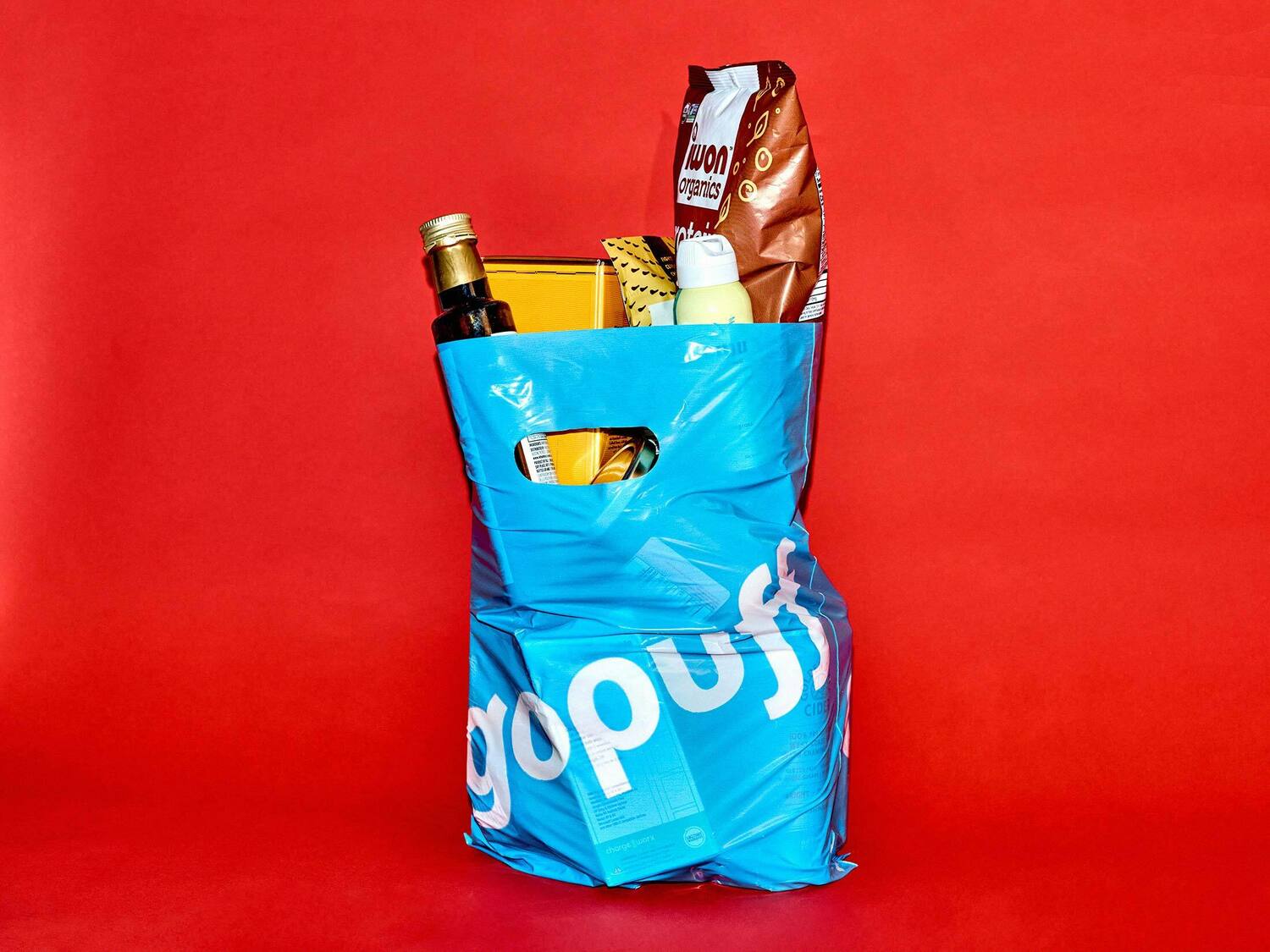To customers dropping in for a quick bottle of pinot grigio, the BevMo! on Junipero Serra Boulevard in Colma, a few miles from San Francisco State University’s campus, looks like one of the chain’s standard outlets—same red signage, same rows of bottled booze. But tucked away in a 2,000-square-foot storage room outside of public view is a new addition, a so-called dark convenience store stocked with items appealing to the most urgent needs of the surrounding population. There are sex pillows, vibrators, whips, and emergency contraception, along with fake eyelashes, frozen food, and printer paper. Couriers wait in parked cars outside, ready to spring into action in case a customer has a sudden need to prepare for an intimate encounter or a day of working from home.The back room is the work of Gopuff, a Philadelphia-based delivery startup that’s raised $3.4 billion from investors including SoftBank Group Corp.’s Vision Fund at valuations as high as $15 billion. The startup aims to provide customers with a wider and more eclectic range of products than they’d find in a convenience store, delivered to their home within a half-hour of placing an order through an app. It bought BevMo for $350 million late last year to gain a foothold in California.
Since then, Gopuff has bought a chain of liquor stores in Kentucky, a pair of European delivery companies, and a fleet-management and mapping software company. Gopuff serves about 1,000 cities from more than 550 locations globally, and it’s opening an average of one or two more a day, fueled largely by pandemic-era enthusiasm for commerce that doesn’t involve leaving the house. Growth that fast comes with issues, though: The company has to quickly identify the best places for its warehouses, anticipate what items to stock to meet local demand, keep perishable items from going bad, and staff its delivery operations in the most competitive labor market in recent memory.
The promise of leveraging the web to enable near-instant delivery has captured the imagination of entrepreneurs since at least the first internet bubble, when startups Kozmo and Urbanfetch offered delivery at speeds and prices that seemed almost too good to be true—then famously collapsed under the weight of unsustainable business models. More recently, DoorDash, Instacart, Uber-owned Postmates, and others have focused on food delivery, avoiding the costly infrastructure requirements their predecessors had by using independent couriers to deliver products from existing restaurants or stores.Gopuff’s plan is old-fashioned compared with those of the DoorDashes of the world. It buys inventory at wholesale prices, stocks it in locations convenient to dense populations of potential customers, and then charges retail prices plus a delivery fee of $2 or so. It’s a simple concept that’s tricky to execute, according to Ryan Sweeney, a partner at venture capital firm Accel who’s been backing Gopuff since 2018. “The mini-warehouse model is very unique and hard to do,” he says. “This is not just another delivery play.” More...
p.s. The DC Courier Services as a Professional Courier Company planning to start new services called "Courier Buy & Deliver" or "CBD" for our customers. We are in the final stage to finalize our offer.
